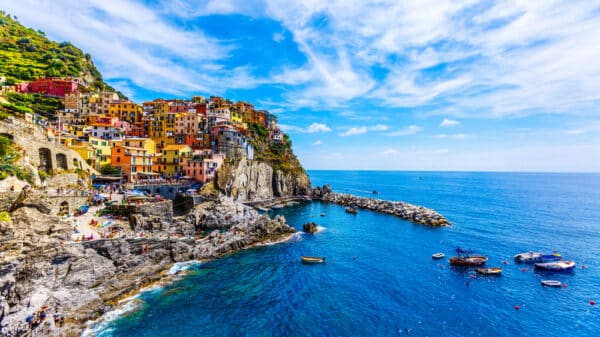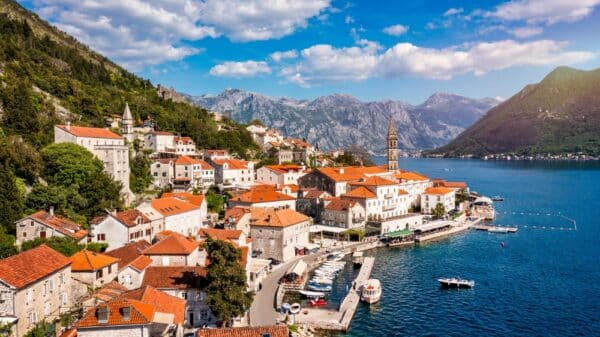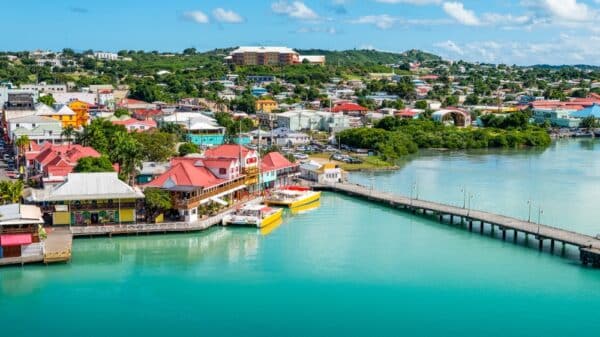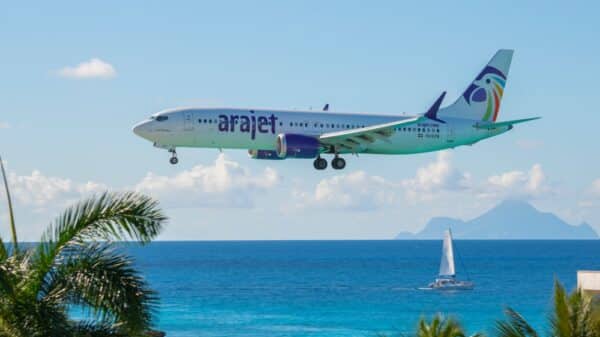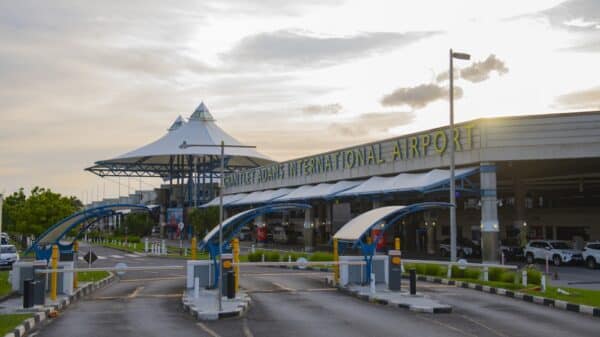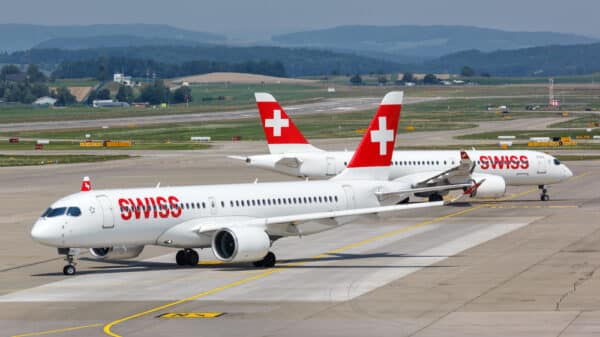President Trump’s 2025 travel ban, reinstating restrictions on nationals from 12 countries, has ignited a wave of disruptions that will affect not only statistics but the personal experiences of travelers and the livelihoods of those in the industry.
Effective June 9, 2025, the ban underscores a shift to prioritize national security. Targeting nations deemed to have inadequate visa vetting processes, high rates of overstays, and concerns related to terrorism, this policy brings significant changes. While these measures are intended to keep American citizens safe, they resonate through the fabric of the U.S. tourism sector, which relies on the vibrancy and diversity that international visitors bring.
For travelers from the affected nations, the changes are not just theoretical—they manifest in disrupted plans, canceled trips, and a sense of uncertainty. The full ban on countries such as Afghanistan, Iran, and Libya means that nationals from these regions will find it increasingly difficult to explore the U.S., impacting the flow of tourists who seek leisure, cultural, or familial connections.
Understanding the Impact on Tourism
The tourism industry’s vitality hinges on international visitors who flock to U.S. cities—contributing to everything from bustling restaurants to vibrant cultural venues. Countries impacted by the full travel ban represent significant sources of tourists. These individuals often travel not just for leisure but for family reunification and cultural exchange, crucial elements in fostering international goodwill.
The consequences of denying entry are stark:
– Reduced Visitor Numbers: With the bans in place, many potential travelers may choose to stay away from the U.S. altogether. Instead, they might gravitate toward countries with more lenient visa processes like Canada and nations in the European Union that are welcoming to those from regions affected by the ban.
– Economic Fallout: Major tourism hubs such as New York, Los Angeles, and Miami could experience a pronounced drop in visitors from these nations. The economic implications are real—local businesses, particularly in the hospitality and retail sectors, could see substantial losses in revenue. For instance, Iranian nationals have historically made significant contributions to these regions, and their absence could leave a palpable void.
– Community Repercussions: Local businesses that thrive on international foot traffic face an uphill battle. Restaurants, hotels, and entertainment venues could see not just a drop in revenue but potentially face long-term closures, leading to job losses and diminished community vibrancy.
Visa Challenges for International Travelers
For travelers from countries facing partial restrictions, including Cuba and Venezuela, the landscape is no less daunting. These individuals may not be completely banned from entering the U.S., but they will encounter increased scrutiny during the visa application process.
The changes mean longer wait times, heightened documentation requirements, and unfortunately, a greater likelihood of visa denials:
– Lengthy Processing: Travelers might find themselves waiting weeks, or even months, for visa approvals. This uncertainty can deter spontaneous travel plans, crowding schedules with unnecessary stress.
– Travel Hesitancy: Many travelers will be left anxious about whether they can secure entry. This uncertainty can lead potential tourists to opt for alternatives where the visa process is not as convoluted, fostering a more welcoming climate.
– Trip Cancellations: For those who had their trips planned, the new restrictions can result in painful cancellations, forcing people to miss out not only on experiences but on precious time with family and friends.
Broader Implications for Business Travel
The challenges are equally acute for business tourism. This sector relies on professionals gathering in the U.S. for conferences, negotiations, and collaborations. With the additional roadblocks in visa approvals, valuable business partnerships may falter.
The stakes are high; international deals could be jeopardized, and foreign entrepreneurs may miss out on pivotal events, disrupting more than just flows of revenue—they could hinder cross-border innovation and cooperation, affecting many sectors in the global economy.
Conclusion: The Future of U.S. Tourism
The landscape of U.S. tourism is shifting, and the ramifications of Trump’s travel ban extend far beyond statistics. As travelers adjust, tourism professionals must also adapt and find new pathways to ensure resilient economic growth.
In a world that feels increasingly isolated, fostering connections and welcoming diversity remains paramount. It’s essential to navigate these changes thoughtfully and collaboratively, pushing past the hurdles to ensure that tomorrow’s travel landscape embraces openness, inclusion, and the rich cultural exchanges that define our global community.The landscape of travel to the U.S. is about to change dramatically. With renewed restrictions targeting nationals from several countries—most notably Iran and Venezuela—many potential tourists are now reconsidering where they vacation. As the U.S. imposes these travel bans, we can expect travelers to seek alternatives far and wide, looking to places with more welcoming entry policies.
Shifting Travel Patterns
Travelers affected by these restrictions are likely to explore other destinations that offer a smoother entry process. Countries such as Canada, Mexico, and various European nations stand ready to welcome visitors who might have once flocked to American cities. Imagine a traveler from Iran deciding to swap a New York skyline for the iconic sights of London or Paris. For many, these cities not only represent cultural landmarks but also a chance to experience a more open atmosphere amidst growing global tensions.
Additionally, countries with less stringent entry requirements, like Turkey, the United Arab Emirates, and Qatar, are poised to see a spike in tourism. It’s easy to picture a group of friends from Venezuela excitedly booking a long-awaited getaway to Dubai instead of the U.S., highlighting how quickly preferences can shift in response to policy changes.
Fluctuations in International Student Enrollment
The educational sector is another arena that will feel the repercussions of these travel restrictions. U.S. universities greatly depend on international students, who not only contribute substantial tuition revenue but also enrich the academic environment with diverse perspectives and experiences. However, with renewed travel bans affecting students from countries like Iran, Somalia, and Sudan, many students might pause or rethink their plans to study stateside.
The fallout for U.S. universities could be significant. First, we may see a decline in international enrollments, leading to decreased tuition revenue—something that could threaten the financial standing of institutions that rely on this income. It’s a stark reality, one that could push schools to tighten their belts and reevaluate their traditional reliance on foreign tuition.
As these students shift their sights to universities in more accessible regions—like the U.K., Canada, or various European institutions—U.S. colleges might miss out on the valuable cultural diversity these international students bring. Think of the vibrant exchange of ideas that happens in classrooms; losing that would not only impact students but also the broader academic community that thrives on diversity.
Navigating the Aftermath of the Travel Ban
The implications of the travel restrictions initiated by Trump in 2025 will resonate deeply within the U.S. tourism industry. Entire sectors—both tourism-related and beyond—face serious disruptions. With national entry bans in place for 12 countries, the ramifications for tourism revenue, international partnerships, and student enrollment are substantial.
Adapting to these new realities will demand creativity and agility from U.S. tourism operators. It’s more crucial than ever for them to explore diversifying their markets and attraction strategies. If travelers are reconsidering their plans due to the political climate, the industry must pivot and innovate to find new ways to capture their interest.
Key Takeaways
– A significant drop in tourism revenue from the affected countries is expected.
– Business travel may also suffer from delays and visa rejections, interrupting vital international trade events.
– Students from restricted nations might turn elsewhere for their education, prompting financial concerns for U.S. universities.
– As travel patterns shift, the global tourism landscape will adapt, reflecting the changes in traveler sentiment toward visiting the U.S.
The road ahead looks challenging, but recognizing the shifts in dynamics can help the tourism industry position itself for reinvention and growth despite the obstacles. Those in the community must stay tuned to these developments, as navigating the aftermath of such a policy change will shape the future of travel well into the coming years.
Image Source: Jacob Lund / Shutterstock

